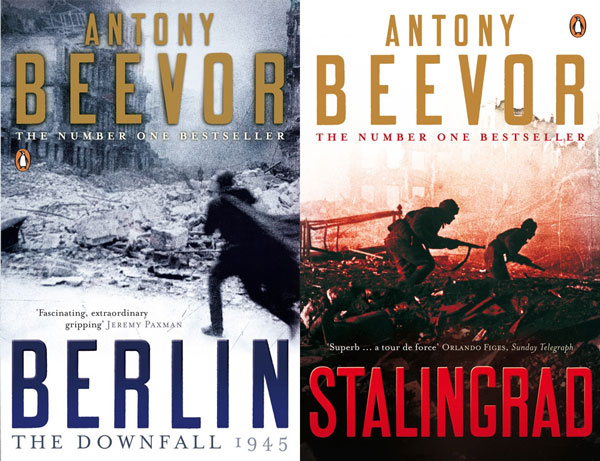
Antony Beevor
For me, archival treasure does not mean the great historical scoop, although it is no doubt very satisfying if it happens. The true value lies in the accumulation of personal detail which illuminates a period. My first great lesson came in 1991 in the Archives Nationales in Paris. I was working at the time on a book which I wrote with my wife, Artemis Cooper, called Paris After the Liberation 1944-1949. After months of frustration, I had finally received permission from the Ministry of the Interior to examine the files of the French security service, the DST, for 1944 and 1945.
Among all the papers packed in the dust-impregnated ‘cartons’, a short paragraph caught my imagination. It was a police report on arrests in the summer of 1945. A German woman, a farmer’s wife, had been found in Paris among French deportees returned from camps in Germany. It transpired that she had had an illicit affair with a French prisoner of war assigned to their farm in Germany while her husband was on the Eastern Front. She had fallen so much in love with this enemy of her country that she had followed him to Paris, having somehow smuggled herself onto a train returning concentration camp victims. That was all the detail provided.
My imagination tried hard to fill in the enticing void of crucial information. I immediately guessed that her journey would have been in vain, even if she had not been picked up by the police. Had her lover given her the right address? The French prisoner of war was probably a married man and had returned to his wife. But perhaps he found, as some did, that his wife had had a baby in his absence by a German soldier. That would have provided a striking balance.
What struck me most, of course, was that a whole novel – perhaps by Marguerite Duras – existed right there in this single paragraph buried in a bureaucratic report. The story could bring to life the fate of individuals caught up helplessly in the maelstrom of the war. That, was a healthy reminder of what history books should be doing too. What was the point of writing about Hitler and Stalin and their generals unless you also perceived the individual, not just the statistical, consequences of their decisions: unless you saw how they shaped the lives and deaths of millions of otherwise faceless people? It was, as I say, a very salutary lesson.
Writer of the month
Antony Beevor spoke at The National Archives as part of our Writer of the Month series. Find out more about the programme of talks or listen to a podcast of his talk.
————————————————————————————————————————-
This blog is part of the Writer of the Month series. In this series well-known authors share their own experiences of using archives for their writing and explore how aspiring authors could also use archives themselves. Blog posts written by guest authors are the authors’ opinion alone and do not necessarily represent the views of The National Archives.


Hello Sir
Please give mé the adress and telefonnummer of
Anthony beevor
Best wiehes
Oma
Hello sir
Please give mé the adress and telefonnummer of
Anthony beevor
Best wiehes
Oma
Interested to note Antony Beevor’s location of the French DST files for 1944-45. Is there any chance he could give me any information about how he did it and who holds them?
I have been trying to consult depositions made to the DST by German SD officers after 1945 but have had difficulty in doing so.
Any help appreciated.
Many thanks